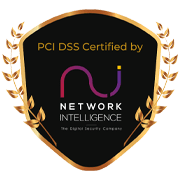What Is BPO? A Complete Guide to Business Process Outsourcing
Running a growing business means juggling dozens of tasks simultaneously. Customer service calls pile up. Back-office paperwork multiplies. Your team is stretched thin, yet hiring more staff feels financially impossible.
This is where Business Process Outsourcing (BPO) transforms operations for companies of all sizes.
Understanding What BPO Really Means
Business Process Outsourcing is the practice of contracting specific business functions to specialized external service providers. Rather than handling every task in-house, companies partner with expert teams who manage these processes more efficiently and cost-effectively.
When business leaders ask “what is BPO,” they’re usually wondering whether outsourcing can solve their specific operational challenges. The answer typically depends on understanding which processes can be outsourced and what benefits this brings.
BPO services generally fall into two categories:
Front-office operations include customer-facing activities like:
- Customer service and technical support
- Sales and lead generation
- Live chat and social media management
- Appointment scheduling
Back-office operations handle internal business functions such as:
- Data entry and document processing
- Accounting and financial reporting
- Human resources administration
- IT services and software development
The Financial Case: Why Companies Choose BPO
Cost reduction remains the primary driver for businesses exploring what BPO can offer. The numbers tell a compelling story.
Consider the true cost of an in-house customer service agent in the United States: Between salary, benefits, infrastructure, equipment, training, and management overhead, a single full-time agent typically costs $45,000-$65,000 annually.
By partnering with a nearshore BPO provider in Mexico or Costa Rica, or an offshore provider in the Philippines or South Africa, companies regularly achieve 30-50% cost savings while maintaining, or improving, service quality.
But smart businesses look beyond the obvious salary differential. The real value emerges from:
- Zero infrastructure investment: No office space, equipment, or IT systems to purchase
- Scalability without risk: Ramp up or down based on seasonal demand without long-term commitments
- Reduced training costs: Experienced agents hit the ground running
- Access to established processes: Leverage proven systems developed over thousands of client interactions

How BPO Elevates Customer Experience
Here’s a counterintuitive truth about outsourcing: when done right, it often improves customer satisfaction rather than diminishing it.
Why? Three key reasons:
1. Specialized expertise matters
BPO services focus exclusively on service delivery. While your internal team juggles multiple priorities, BPO agents specialize in customer interactions. They’re trained on the latest service techniques, use advanced tools, and benefit from ongoing quality coaching.
2. 24/7 availability becomes affordable
Providing round-the-clock support with an in-house team requires three full shifts and complex scheduling. Call center services from BPO partners across different time zones make 24/7 service economically viable even for mid-sized businesses.
3. Cultural and linguistic alignment
Nearshore services in Latin America offer an often-overlooked advantage for U.S. companies: agents who genuinely understand American culture, idioms, and regional differences. A customer in Texas and an agent in Tijuana, Mexico share similar time zones, cultural references, and communication styles, creating seamless interactions.
For example, when a customer mentions “March Madness”, a nearshore agent immediately understands the basketball tournament reference. This cultural fluency creates genuine connections that purely transactional interactions never achieve.

The Efficiency Multiplier Effect
Efficiency gains extend far beyond simple task completion. Strategic BPO partnerships create compound benefits:
Multilingual capabilities at scale
Need Spanish-speaking customer support? A BPO partner can staff an entire multilingual team faster than you could recruit, hire, and train a single bilingual employee. This immediately opens new markets without the lengthy hiring process.
Industry-specific knowledge transfer
Established BPO companies serve multiple clients within specific industries. They’ve seen countless scenarios, solved recurring problems, and developed best practices. This collective knowledge benefits your business from day one.
Technology and tools included
Modern BPO providers invest in cutting-edge CRM systems, quality monitoring software, workforce management tools, and analytics platforms. You gain access to enterprise-grade technology without capital expenditure.
Process improvement as standard practice
Because BPO companies measure performance rigorously across many clients, they continuously refine processes. Your operations benefit from insights gathered across their entire client portfolio.

Expanding Your Market Reach Through BPO
Business growth often requires entering new markets, geographic, demographic, or linguistic. This is where understanding what BPO offers becomes strategically crucial.
Consider these expansion scenarios:
- An e-commerce company wants to serve Spanish-speaking customers but lacks bilingual staff.
- A SaaS business needs to provide support across Asia-Pacific time zones.
- A healthcare provider must handle HIPAA-compliant medical billing across multiple states.
Each scenario involves specialized requirements, regulatory knowledge, and infrastructure that would take months or years to build internally. The right BPO partner already has these capabilities ready to deploy.
Multi-channel support becomes manageable
Today’s customers expect service through their preferred channels: Phone, email, live chat, social media, SMS, or even fax for some industries. Managing this omnichannel approach internally requires different systems, training, and staffing models for each channel.
Contact center services from BPO providers unify these channels through integrated platforms, ensuring consistent service quality regardless of how customers choose to connect.
Choosing the Right BPO Partner
Not all BPO providers deliver equal value. When evaluating potential partners, scrutinize these factors:
1. Industry experience
Generic call center experience differs dramatically from specialized knowledge in healthcare, financial services, or technical support. Request case studies from your specific industry.
2. Cultural and geographic fit
Nearshore services (Latin America), offshore services (Asia/Africa), and onshore (domestic) each offer distinct advantages. Nearshore often provides the best balance of cost savings, cultural alignment, and time zone overlap for U.S. companies.
3. Technology infrastructure
Modern BPO requires robust technology. Ask about their CRM systems, reporting capabilities, data security measures, and disaster recovery plans.
4. Scalability guarantees
Growth means nothing if your BPO partner can’t scale with you. Understand their capacity, recruitment processes, and ability to handle volume fluctuations.
5. Transparent metrics and reporting
You can’t improve what you don’t measure. Ensure your partner provides real-time dashboards, regular performance reviews, and clear SLA definitions.
Making BPO Work for Your Business
Business Process Outsourcing represents more than cost reduction: It’s a strategic tool for competitive advantage. By partnering with the right provider, you free internal resources to focus on core competencies while leveraging specialized expertise for supporting functions.
The most successful BPO relationships share common characteristics:
- Clear communication and expectations from the start.
- Ongoing collaboration rather than “set and forget”.
- Alignment on quality metrics and continuous improvement.
- Cultural fit between organizations.
- Scalability plans that accommodate growth.
Whether you’re a startup looking to provide enterprise-level support or an established company seeking operational efficiency, understanding what BPO can deliver, and selecting the right partner, can accelerate your growth trajectory significantly.
Ready to Scale Your Business with Expert BPO Services?
Don’t let operational constraints limit your growth potential. Redial BPO has been helping businesses like yours achieve exceptional results for over 45 years. Our nearshore expertise combines cost-effective solutions with the cultural alignment and time zone compatibility that U.S. companies need to succeed.
Here’s what you’ll get when you partner with Redial BPO:
✓ Immediate cost savings of 30-50% on operational expenses
✓ Bilingual, culturally-aligned agents ready to represent your brand
✓ Scalable solutions that grow with your business needs
✓ Advanced technology and proven processes from day one
✓ Fast ROI with most clients seeing positive returns within 3-6 months
Take the first step toward transforming your operations today.
Schedule Your Free Consultation Now
Our BPO experts are ready to analyze your specific needs and show you exactly how much you can save while improving service quality. No obligations, no pressure—just honest insights into how BPO can work for your business.
👉 Schedule a call with a Redial BPO representative
Or fill out our quick contact form below, and we’ll reach out within 24 hours:
FAQ: What is BPO?
1. What’s the difference between nearshore and offshore BPO?
Nearshore refers to outsourcing to nearby countries (e.g., U.S. companies partnering with Mexico or Costa Rica) that offer similar time zones and cultural alignment. Offshore involves partnering with distant countries (e.g., the Philippines, India, South Africa), typically providing greater cost savings but with time zone and potential cultural differences.
2. How quickly can I start seeing ROI from BPO services?
Most companies see positive ROI within 3-6 months. Cost savings are immediate, while efficiency improvements and quality gains typically materialize within the first quarter as processes are optimized and agents become fully trained on your specific needs.
3. Will outsourcing hurt my customer satisfaction scores?
No, when partnered with the right provider, customer satisfaction typically improves. Professional BPO companies specialize in customer interactions, use advanced quality monitoring, and employ experienced agents. Many businesses see CSAT scores increase by 10-15% after implementing quality BPO services.
4. What’s the minimum commitment required for BPO services?
This varies by provider, but most reputable BPO companies offer flexible arrangements starting with as few as 5-10 agents. Contract terms typically range from 6 to 12 months initially, with month-to-month options available after the initial period. Always discuss scalability options upfront.
5. Can I outsource just one specific function, or do I need to outsource everything?
You can absolutely outsource specific functions. Most companies start with one area (like customer support or data entry) and expand as they see results. This selective approach lets you test the partnership and maintain control over core business functions while optimizing specific processes.

I’m the VP of Client Services at Redial BPO. I’m passionate about CX, building strong client relationships, and blending tech with human talent to deliver top-tier service across industries.



